I am posting an article I wrote for my local neighborhood newspaper the summer of 2008. After graduating with my degree in biology and minor in philosophy from Colorado College I participated in a very neat border immersion experience on the Mexican/US border with my college catholic community members. Below are my insights and observations as well as thoughts on sustainability and border issues! Enjoy!
FOR THE HILL AND LAKE PRESS
“A Border Awareness Experience: Solidarity and Sustainability on the Border”
By Nicholas K. Halbert
Nick has been a resident of the CIDNA Neighborhood since March 1989. He graduated from Benilde-St. Margaret’s High School in June 2004. On May 19, 2008, he received the degree of Bachelors of Arts from Colorado College. Nick majored in Biology, minored in Philosophy and successfully completed the Pre-Medicine requirements.
From May 31 to June 6, 2008, Nick and three of his peers from the Catholic ministry program at Colorado College and UCCS (University of Colorado at Colorado Springs) and the director of social concerns for Catholic Charities participated in a B.A.E. – Border Awareness Experience, an educational immersion program conducted by the Women’s Intercultural Center in Anthony, New Mexico, http://www.womensinterculturalcenter.org/bae/bae.htm. Nick wanted to share some of his observations from the trip with you.
************
During my trip to the U.S.-Mexico border, I learned about support systems that help immigrants. I learned about globalization, NAFTA - North American Free Trade Agreement, and their effects on the socio-political and economic inequalities immigrants and people living along the border face every day. In addition, I learned all of the aforementioned while consciously viewing the issues from a moral and religious perspective. My motivation for going on this B.A.E. was two-fold. First, I wanted to be immersed in the unique and vibrant border culture, which is found on either side of the Rio Grande. Also, I wanted to become a well-informed advocate for social justice and human rights issues that exist along our border.
A few take home observations I found important from my trip were in regards to the women in Juarez, sustainability, the environment and our future as an evolving species. For me, the most educational and valuable part of the B.A.E. were the two nights spent in a colonia in Juarez, Mexico. A colonia is a rural, unincorporated settlement along the border, which is economically disparate, having an underdeveloped infrastructure.
While in Juarez, Mexico, I had great admiration for the women of our host families. They unmistakably displayed a gracious and non self-righteous mentality. This mentality was an inherent part of their Mexican culture, something, which focused on the creation of personal interactions driven by relationships. With the support of the Women’s Intercultural Center, these women have defied traditional patriarchal gender roles and have become independent, self-minded, well-educated and emotionally and psychologically strong with a sense of high self-worth.
Another admiration for the good people living in the colonia in Juarez was their concern for the environment and living a sustainable lifestyle. One of the first social roles of the women in this colonia was the creation and installation of ecological toilets in their homes, many of which had no running water. The idea of the ecological toilet is to provide sanitation for the inhabitants of a colonia, which does not have a reliable sewer or septic system. The ecological toilet does not need running water to function and is environmentally safe and healthy.
Another sustainable practice involved the re-use of water. These same humble, simple and wise people are learning to re-use water – in a land where with luck, rainfall occurs only two months of the year. The women in the colonia developed flower pots and gardens outside their women’s center and around their own homes, which could filter water. Common places for naturally filtering plant boxes would be at the outlet for sink water, the washing machine, or the base of the rainwater runoff from the roof. These plant containers have a carbon-based filtering system embedded at the bottom. This allows dirty water to be filtered naturally, through the soil and roots of the plants as well as synthetically, through carbon films. At the end of the filter system there is an in-ground concrete catch-box that gathers the water for re-use.
This border immersion experience has made me aware of the economic inequalities and disparities in human dignity that exist between two populaces separated by an artificial boundary/border. Furthermore, it has given me great admiration for the good people in the colonias such as the women of our host families. People, who economically have so little in comparison to the majority of their neighbors to the north, and yet, are able to genuinely appreciate the little they do have, by respecting each other and their environment, in a sustainable fashion. It is this idea of sustainability and the notion of interconnectedness in our environment that I hope will be a unifying principle for current and future generations.
In conclusion, I remain hopeful that one day the U.S.-Mexico border will be a place of true solidarity instead of a place of disunity, inequality and hardship. In ridding myself of self-righteous and willful thoughts and by turning within, I hope to find a universal Spirit, a Spirit that dwells within all human beings and derives the hopeful realization that, ‘what we do to others, we are doing to ourselves.’ Only when we as Americans can unite with all human peoples of the globe and strive for this end goal with all of God’s creation – humans, the environment, and all other organisms – shall we willfully declare progress, sustainability and solidarity in this world.
Wednesday, May 11, 2011
Subscribe to:
Post Comments (Atom)
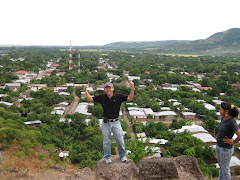


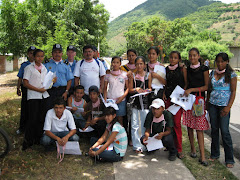


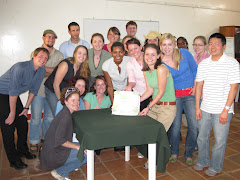
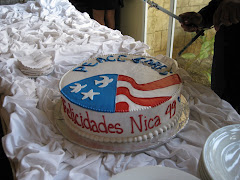
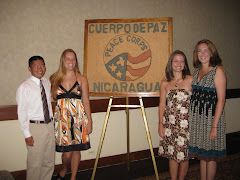
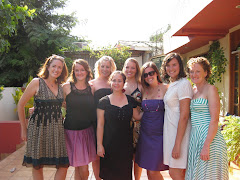
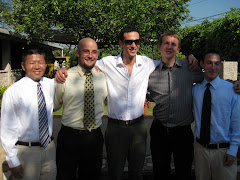
No comments:
Post a Comment